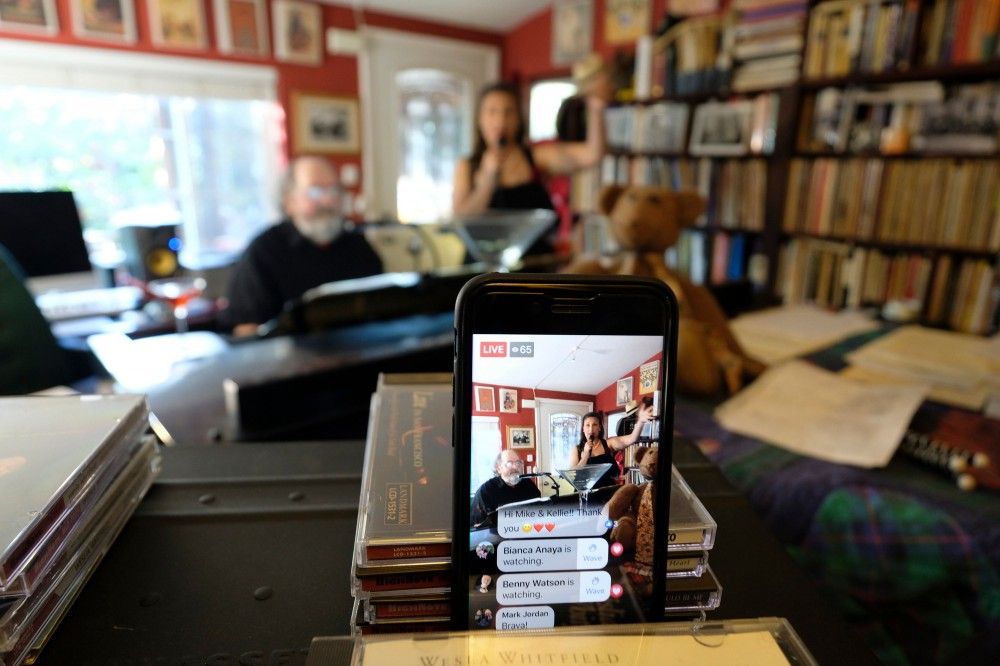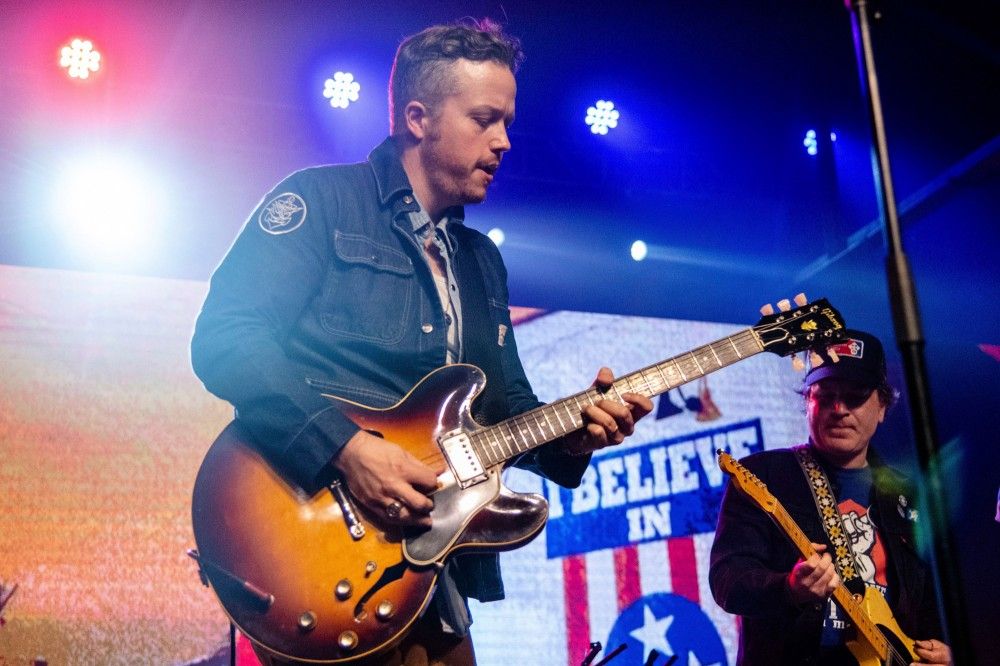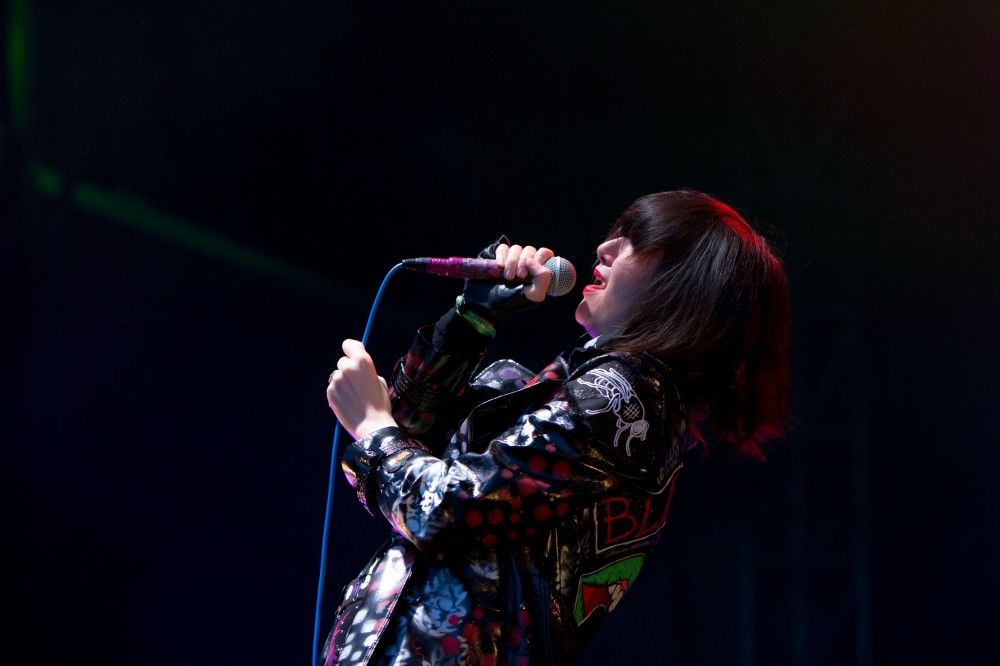
'This Is a Whole New World': Record Labels Are Designing Marketing Strategies From Scratch
Since the pandemic began, every record labels’ marketing team has been throwing around the same buzzword phrase: “getting creative.”
Traditional album marketing tactics like touring — which is essential for developing artists who need to build up a new audience and strengthen relationships with their existing fanbase — have gone by the wayside. Livestreaming, now that the lockdown has stretched two months, is oversaturated with artists small and large. With the physical world more or less off limits, artists and labels are trying to find new ways to cut through the noise and design online experiences that stand out.
Some digital strategies have been fairly straightforward: Labels that were invested in marketing tactics on TikTok have upped their game recently, as the platform is enjoying record popularity with over 300 million downloads in the first quarter of 2020. Others are experimenting with having artists do intimate Instagram Live sessions — and another group is bent on launching more ambitious virtual performances.
“Not to use a cliché, but necessity is the mother of invention in this case,” says Epic Records’ senior vice president, head of marketing David Bell. “Before early March, a couple weeks before we’d even shut down the office, Epic’s CEO] Syl Rhone challenged the company, leaning heavy on this type of marketing. We started the brainstorming then so we could get ideas to artists quickly, and that was successful. We got a bit of a head start there.”
nabbed the crown jewel of digital marketing opportunities when he and Cactus Jack partnered with Fortnite for a wildly popular concert. (Scott is signed to Epic but brokered the deal with his own team.) The show’s date was accelerated in light of the pandemic, says a representative for Scott. The concert drew 12 million fans into the in-game show and helped catapult his new single “The Scotts” featuring Kid Cudi to a Number One debut. Scott got a boost in his catalog too, with 2018 album Astroworld climbing back into the top 10 from Number 29 on Rolling Stone’s Top-200 album chart following the performance. His older singles “Sicko Mode” and “Highest in the Room” hit the top-30 on Rolling Stone’s song chart as well.
Epic’s tour marketing team, which is usually responsible for facilitating physical marketing, is pivoting to 100% digital, making itineraries and schedules for all the artists’ digital showings. They’re as active as before the pandemic, Bell says.
“We’re already going into an increasingly digital world, and every aspect of a record company now has a digital aspect to it. It wasn’t a giant leap. It’s more that the challenge just dropped on us. But we’re operating smoothly, and we’re putting out a lot of music.” — David Bell, Epic Records
“What I said out of the gate: It’s a mindset shift,” Bell says. “I was thinking to myself, this is a whole new world for us. Let’s reinvent what we need to do. Operationally we had to shift. We’re already going into an increasingly digital world, and every aspect of a record company now has a digital aspect to it. It wasn’t a giant leap. It’s more that the challenge just dropped on us. But we’re operating smoothly, and we’re putting out a lot of music.”
Epic has for the most part divided its digital marketing plan into three sections, Bell says: artist and label driven content such as at-home shows; media appearances on radio and press; and more bespoke opportunities like Scott’s Fortnite concert.
The label has helped Meghan Trainor participate in a “Live From Home” charity tour, in which the singer performed sets from different rooms in her house for different social media platforms. Trainor’s home tour was a combination of the three marketing sections — attempting to simulate a live touring experience from her home. The tour raised $225,000 for Feeding America. “We put it up with an actual tour ad, it looks like tour dates. It’s a little kichy, but we wanted to create venues,” Bell says. “She’d play in her bedroom one night, in her backyard another, from the kitchen, from the living room. It’s a way to package this as a marketing experience for fans rather than just having it be disparate events.”
Epic tried simulating some of the ancillary marketing on the virtual tour too — partnering with a platform to give a few selected fans a timed meet-and-greet with Trainor, akin to what they’d get if they won a radio contest backstage giveaway before a show date. “We wanted to take that another step further,” Bell says. “It’s really analogous to those meet-and-greets afterwards. We wanted to recreate the actual live experience as best as we could.”
Labels have had to delay some albums: Major releases such as Lady Gaga’s upcoming Chromatica (which was meant to come out earlier this spring and is now scheduled for the end of May) and Alicia Keys’ eponymous Alicia (which doesn’t have a new release date yet) have been postponed amid the chaos. Still, several labels who spoke with Rolling Stone said that while their release cycles had some shifts, they’re managing to mostly keep steady, which means they can plan their release strategies on a solid timeline.
Carolyn Williams, executive vice president of marketing at Sony’s Records, says Instagram Live has been RCA’s most valuable digital marketing tool — but with so many people on the platform, labels need to go beyond a more cookie cutter stream to fans on social media. “People have already gotten fatigued on IG Live performances,” she says. “What kind of content is going to be interesting, what’s going to cut through the clutter?”
Earlier on in the pandemic, RCA was surprised music streaming didn’t boom the way many thought it would — then realized streaming had to compete with a considerable amount of mass media. “We saw it was down and thought, ‘Oh my goodness what’s going on here.’ We were competing with Netflix, Apple. We looked at buckets and saw news was the biggest bucket of consumption. We’re competing with news now,” she says.
Getting artists on major broadcasts like Global Citizen’s Together At Home concert or iHeart Radio’s Living Room Concert for America proved particularly affective, Williams says, with artists like Alicia Keys seeing boosts as songs they’d performed had taken on new meanings given the pandemic’s context.
“That iHeart event was one of the first we’d done in the very beginning, and Alicia Keys’ acoustic version of ‘Underdog’ resonated so well with people by coincidence, it’d been out for a couple months, and it seemed to hit home for everybody,” she says. “It was then that we realized we could put content in front of people like that and still showcase a message. I don’t have a magic answer, we’re feeling this out, but we’re now looking to what is that other area where we can compete with all the other forms of content out there, whether it’s Netflix or HBO.”
“I’m not going to become a YouTube blogger or TikToker overnight. The other thing is that if there’s pressure to reach the audience in creative ways, everyone can smell when someone’s not genuine, when they’re using the platform just for clicks.” — Joshua Speers, artist
Artists are facing new marketing challenges through the pandemic as well — forced to step out of their comfort zones and be more digitally minded than before. Warner Records singer-songwriter Joshua Speers had been readying the release of his debut EP Human Now, which came out Friday amid the pandemic. As one of Warner’s younger developing artists, Speers was banking on more traditional marketing support of his new music with a couple release shows in New York and Los Angeles and his booking agents were looking into potential tour dates, but those are off the table for the foreseeable future.
He’s now focused on how he can to engage fans; he’d started doing a virtual book club through Instagram Live, and he and the label have worked on new lyric videos featuring art he drew himself, he says. “There’s a different job description now for being a musician now,” Speers says. “If you counted having lots of touring experience as a leg up, that doesn’t count now.”
Like everyone else, Speers is going more digital, but he’s being careful about how he presents content, and he’s wary of seeming transactional amid higher traffic online. “Whether it’s been spelled out or more suggested, it’s all the same stuff with new methods. Engaging fans, I want to do that in as genuine a way as possible,” Speers says. “I’m not going to become a YouTube blogger or TikToker overnight. The other thing is that if there’s pressure to reach the audience in creative ways, everyone can smell when someone’s not genuine, when they’re using the platform just for clicks.”
Indie labels have seen major shifts too. Fat Possum Records, one of the more prominent indies in the country with a catalog that includes records from blues legends like Mississippi Fred McDowell and R.L. Burnside along with more contemporary acts like the Black Keys and Soccer Mommy, has had to make an unprecedented shift to digital.
Fat Possum owns a vinyl-pressing plant and puts strong resources into its physical product, but challenges in retail have forced the label to pivot. Team members usually dedicated to working with indie record stores have had to put their focus toward YouTube ads and TikTok. “We’re using this whole thing to get us more entrenched in the digital world,” Says Fat Possum founder and President Matthew Johnson. “Everything from TikTok, that stuff, that’s the only outlet available to us now.”
Patrick Addison, who helps run marketing and distribution at Fat Possum, says “A lot of that could be playing catchup, but at the same time you’re putting even more content on YouTube right now, so there’s more room to go in and learn and understand.”
Plans for Fat Possum’s current signees’ new releases turned quickly. Indie rock band The Districts had just started a tour in support of their new album You Know I’m Not Going Anywhere and were on their way to New York for a show at the Warsaw in Brooklyn when shelter in place orders started, and their tour was nixed. The label was also readying the re-release of El-P’s album Fantastic Damage.
More recently, Fat Possum modified its release plan for influential Los Angeles punk band X’s latest album Alphabetland. But rather than delaying it as has more popularly been the case, Fat Possum moved the album up, giving Alphabetland a surprise release. Fat Possum started with a limited release through Bandcamp, the band’s first major release of the digital era.
“I don’t think Bandcamp was in their vocabulary,” Johnson says of X’s previous release strategies. “This was a band that had success in a vinyl world, and with the CD world. They hadn’t had a relevant record in the digital era. We were going to rely on physical. That seemed the way to play it. But things changed, and we had two choices: Hang around for a year or release it now.”
Decisively, the label opted for the surprise release, making the decision on a Wednesday, getting the master on Thursday and releasing the record the following Wednesday. It paid off, Johnson says, with the Bandcamp release exceeding expectations while Fat Possum readies a wider release.
“I wasn’t thinking about anyone else, I was thinking about the X record. It worked for us,” Johnson says. Our shit’s for now, we don’t make records to put out two years in the future. We’re flexible and we can pivot when we need. I’ve been using the word ‘pivot’ a lot these days.”
Read next: To Get a Record Deal Right Now, You’d Better Ooze Presence Over Zoom



